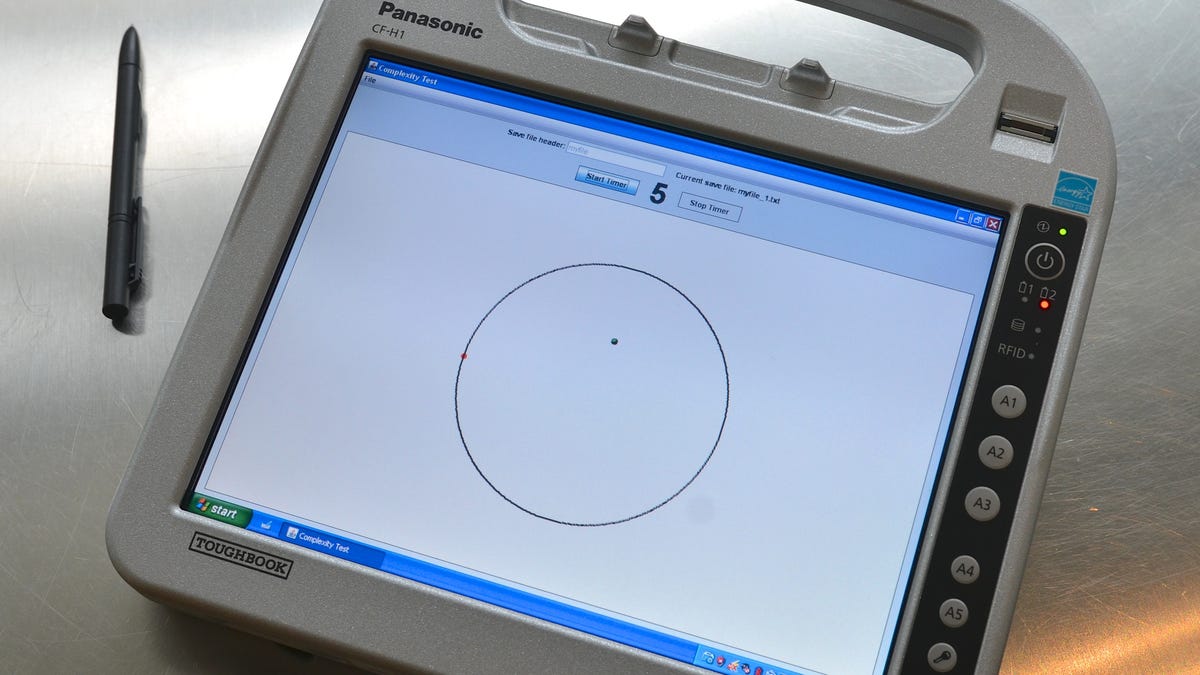New tablet app could diagnose concussions on the sidelines
Harvard's Wyss Institute unveils an application that involves a stylus and simple tracing exercise to rapidly assess neuromuscular performance in a doc's office or at the scene of an injury.

It's no secret that the standard hand-eye coordination tests doctors use to monitor neuromuscular deficits -- typically when a patient is injured or as a patient ages -- can be subjective, relying on, say, descriptions of reflexes and cognitive status such as "mild," "moderate," and "severe."
So researchers at the Wyss Institute for Biologically Inspired Engineering at Harvard, the Beth Israel Medical Center, and Hebrew SeniorLife have been developing what they call a rapid neuroassessment device, nicknamed NeuroAssess, to measure neuromuscular performance quantitatively instead of qualitatively.
They've recently tested it on 150 healthy people aged 21 to 95 in the Boston area and are reporting in this week's Journal of Gerontology that their tablet-based tool can assign an actual number to describe the difference in performance between various individuals and conditions.
"This new tool may hold great potential to augment existing protocols in a doctor's neuromotor assessment toolbox," Wyss Senior Staff Engineer Leia Stirling, who led the study, said in a news release. "It is portable, repeatable, quick to administer, and easy to perform."
In the study, participants used a stylus on a tablet to perform a basic tracing task, follow a moving target around a circle. Wyss developed proprietary computer methods to measure even the subtlest deviations from the circle, which help observe such skills as "motion fluidity" (how long the user pauses) and "complexity" (how well the person adapts to changes).
The app analyzes this data while taking into account the participant's age, sex, and handedness, and then assigns a number.
Now that they've collected baseline data from healthy subjects, the team will investigate how well NeuroAssess can, well, assess people with known neuromuscular pathologies, from concussions to multiple sclerosis. The team is already working with athletes in Boston to gauge its ability to diagnose concussions.
Stirling says we may eventually see tools like NeuroAssess on the sidelines of playing fields, in war zones, and next to thermometers and blood pressure monitors in doctors' offices: "Just as your blood pressure is recorded during every visit, so could your neuromuscular score be tracked over time to determine progress through recovery and rehabilitation."

